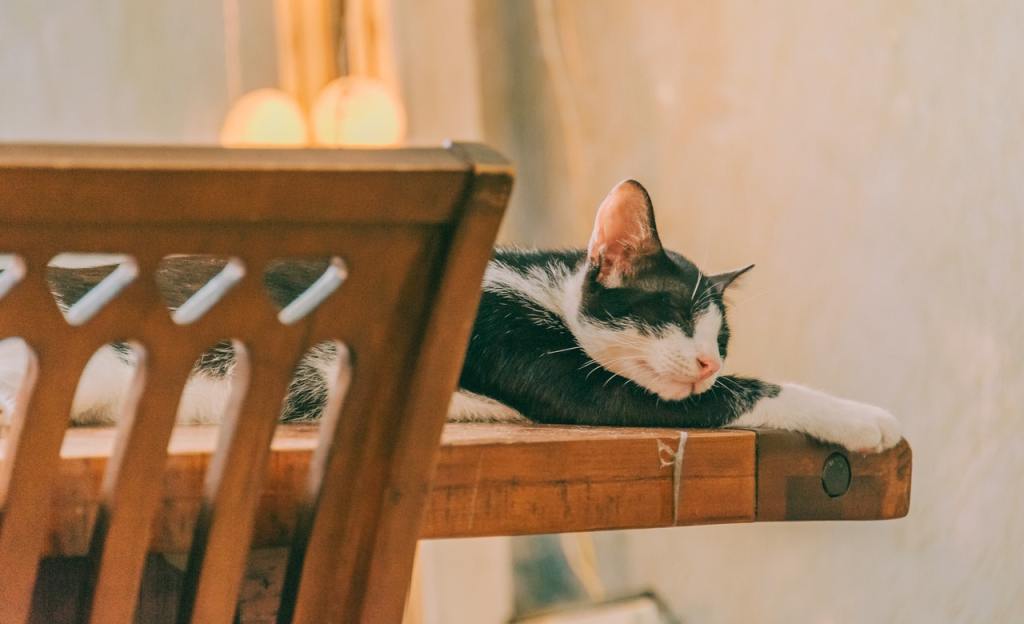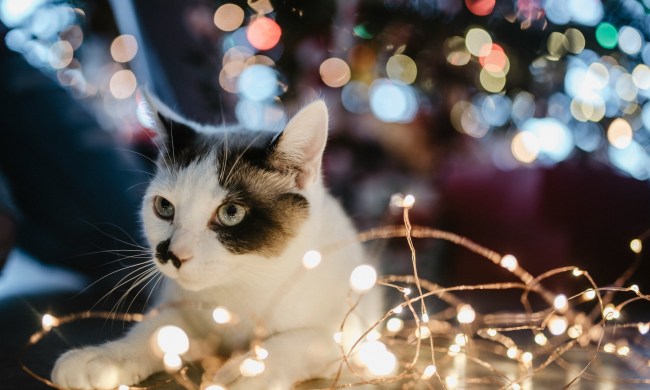If your cat wakes you up at night, runs around the house, and meows enthusiastically, then it’s time to find a solution that lets you both get a good night’s sleep. A sleep aid for cats can help encourage your cat to sleep and promote relaxation. Pairing a sleep aid with some other techniques may get your cat to sleep at night, so you can both get some rest. But which cat calming treats, gels, and oils work best? We’ve highlighted some of the best products available, and each is backed by reviews by cat owners who have purchased and used the products.

NaturVet Quiet Moments Calming Aid
The NaturVet Quiet Moments Calming Aid includes melatonin, which is known for its ability to promote sleep. These soft chews help reduce stress and promote rest and relaxation.
Kat M. writes, “This stuff is great! My cats put me on a 4 am weekend wake up and feed me schedule. I started giving them one at bedtime and they leave me alone til 6.” C. Wilson also had good results: “These work well for the purpose I purchased them. I give my cat one treat at night (half of the serving suggestions), and he mellows out and I can sleep.”
VetriScience Laboratories Composure, Calming Formula for Cats
VetriScience Laboratories Composure includes colostrum, L-theanine, and thiamine to help encourage your cat to relax. It starts to work in 20 to 30 minutes and is delivered in a soft chew with a chicken liver flavor.
Siamic, a certified cat behaviorist and registered veterinary technician, praises this product. “I have been using this product lately in the shelter setting for cats who are stressed out by the change in the environment and in their life. It helps them navigate the tough waters of transitioning until they are confident enough that they do not need a supplement. I even use it in cats prior to a tough veterinary visit or transport which helps to calm them down prior to the veterinarian drawing blood or administering anesthetics/analgesics.”
Restful Pet
Restful Pet is a combination of hemp, chamomile, and valerian oil for both cats and dogs. It promotes relaxation and encourages your pet to rest comfortably. The drops are easy to administer.
Kate Williams finds this product significantly helped her cat: “I have a cat who has major anxiety, fur puller, and skin biter. He’s been on several medications but nothing works consistently. I decided to try this and although it took a little time I noticed a great improvement in my kitty.”
ThunderWunders Cat Calming Paw Gel
The ThunderWunders Cat Calming Paw Gel helps reduce stress caused by vet visits, fireworks, and other stressful situations. It’s easy to administer, and you just need to apply the gel to the top of your cat’s paw.
Sydney writes, “Tried it for our older cat to help with the transition. Moved and he is staying inside until we know the neighborhood better. Easy to apply on his paw at bedtime. Keeps him busy and then settles in for the night.”
Zesty Paws Calming Bites
The Zesty Paws Calming Bites promote calmness and composure in your cat. They include melatonin, omega-3 fatty acids, and L-tryptophan and chamomile. They’re easy to feed and feature a tasty salmon flavor.
Goldie171 recommends the chews. “I was so happy to find a product that helps my older rescue cat calm and took her nervousness away. I gave her half the salmon treat mixed in with others and I noticed her behavior was much more relaxed. Great product and would definitely recommend,” she wrote.
These products can promote a calm, relaxed outlook in your cat and encourage him to sleep through the night, and they’re particularly helpful when you pair them with other strategies to encourage your cat to sleep when you do. Try playing with your cat throughout the day and right before you go to bed to help tire him out. You might also want to break up your cat’s meals into multiple small feedings, and feed him just before it’s time for bed so his grumbling tummy doesn’t wake him up. A few adjustments to your lifestyle may help encourage your cat to sleep each night — and to let you sleep, too.


